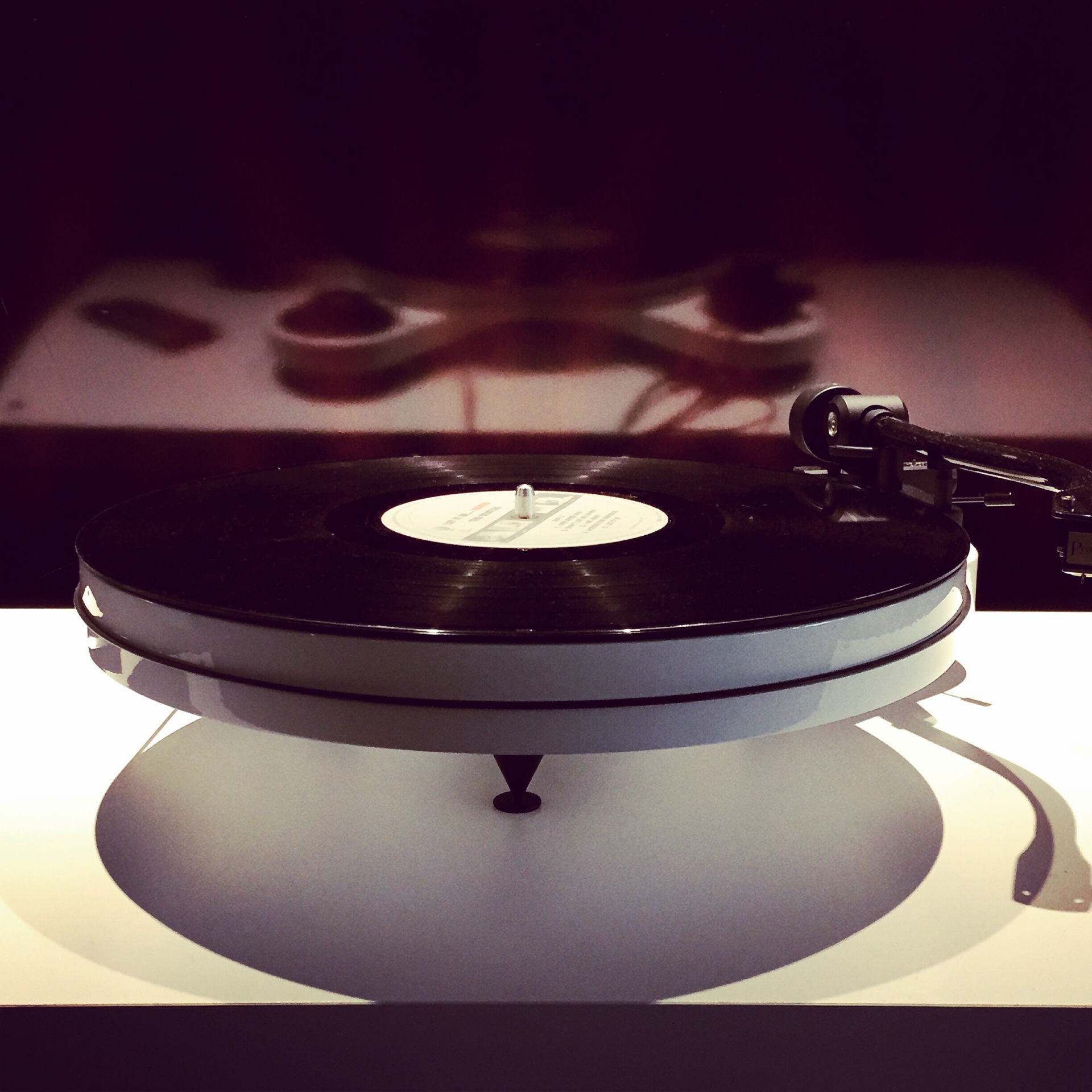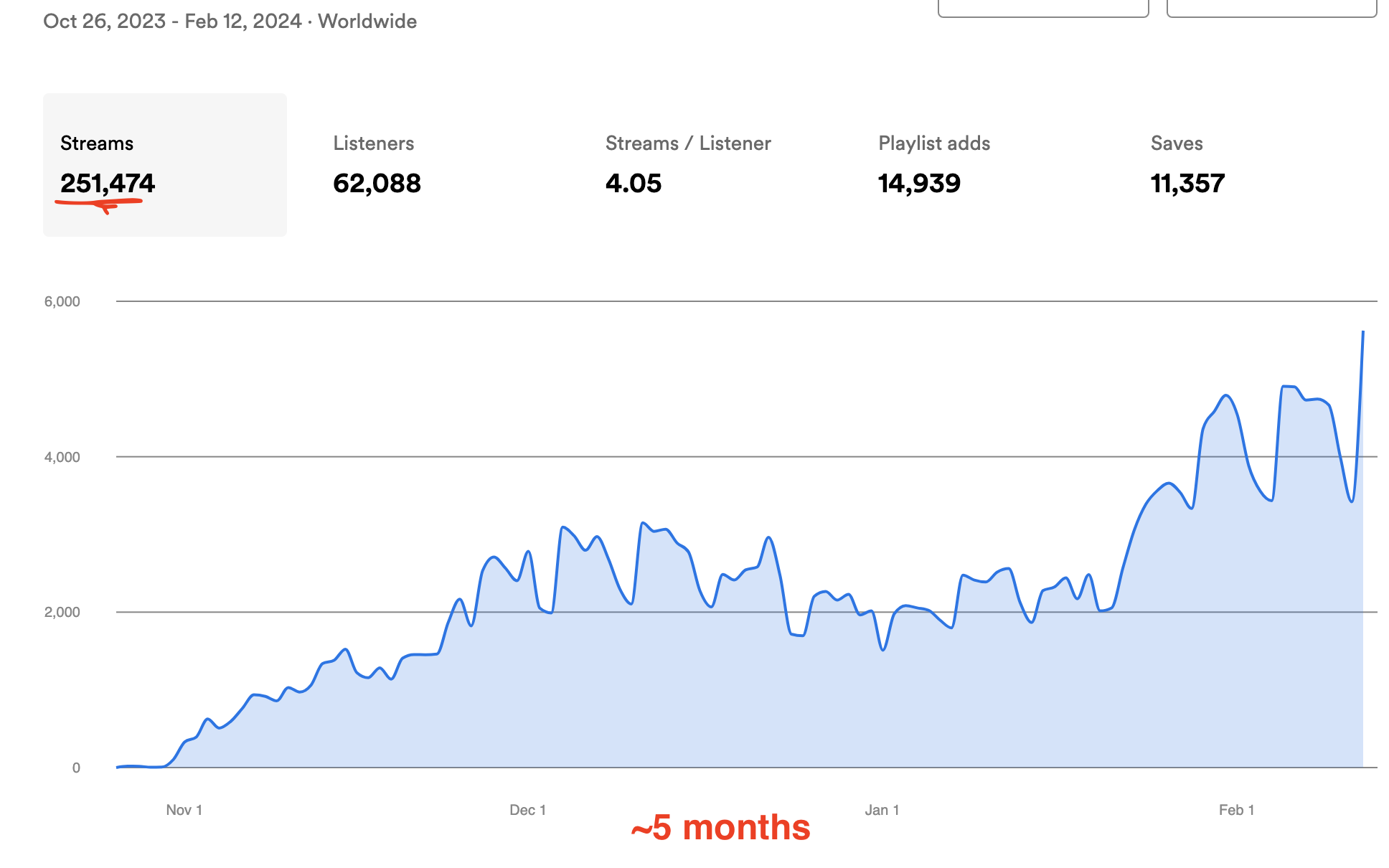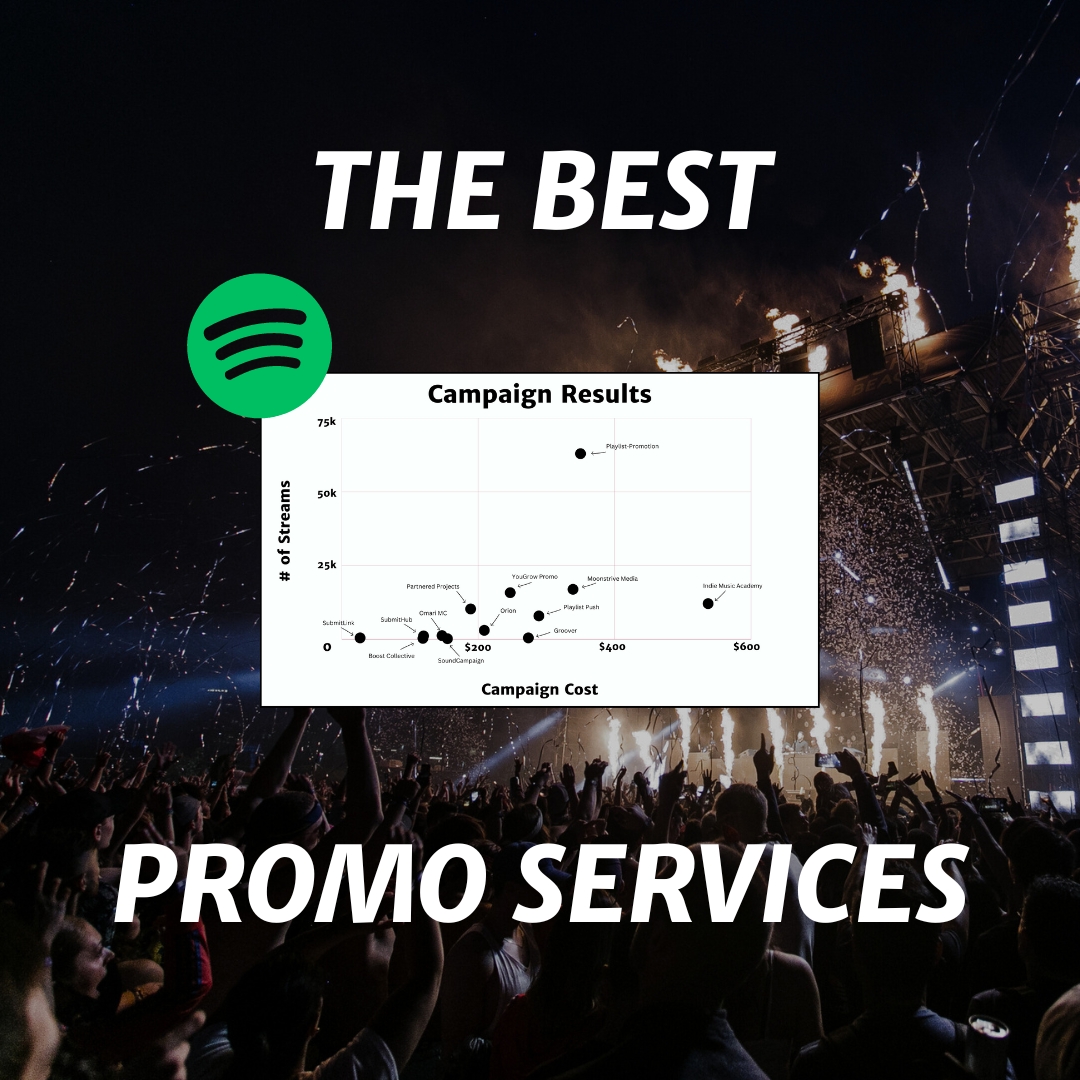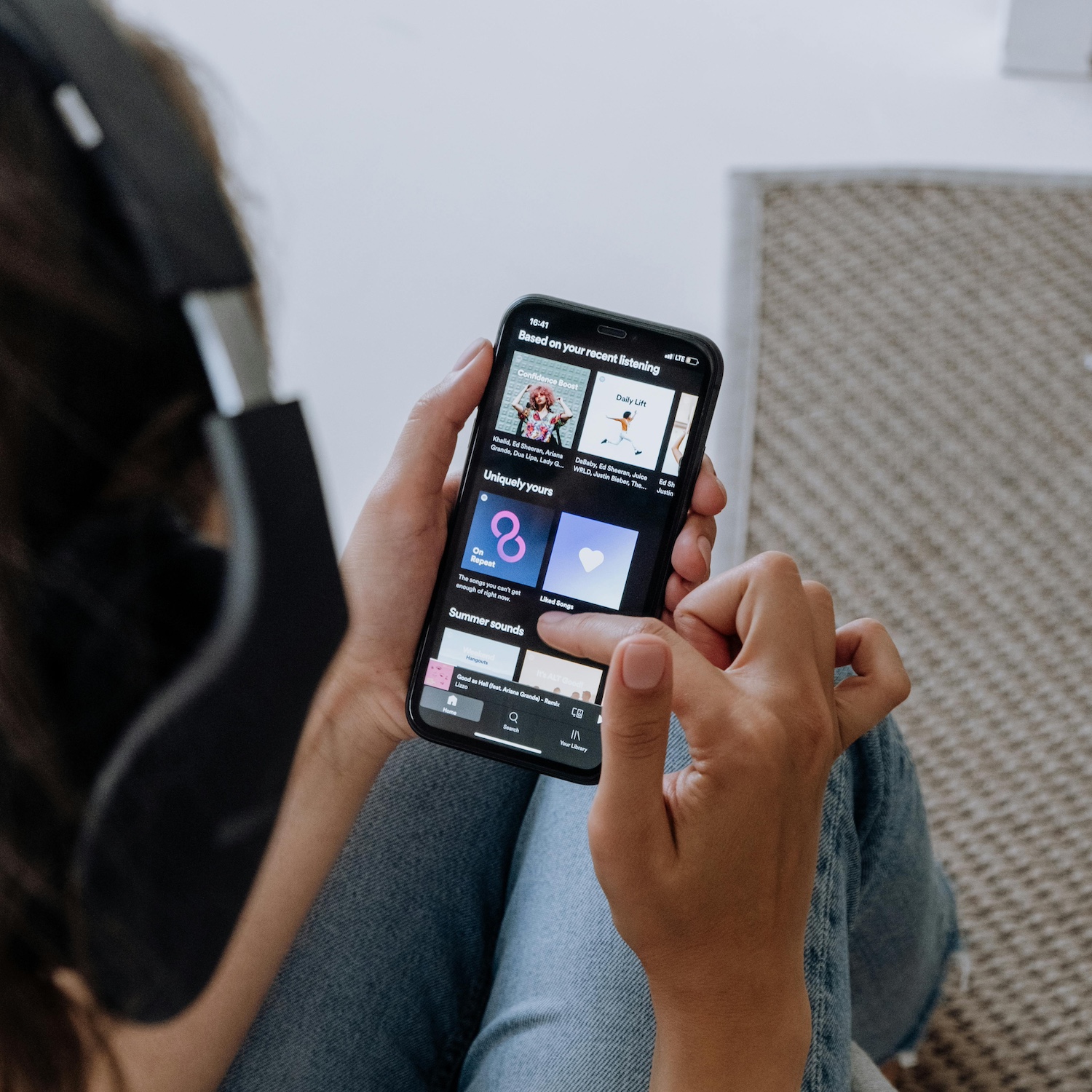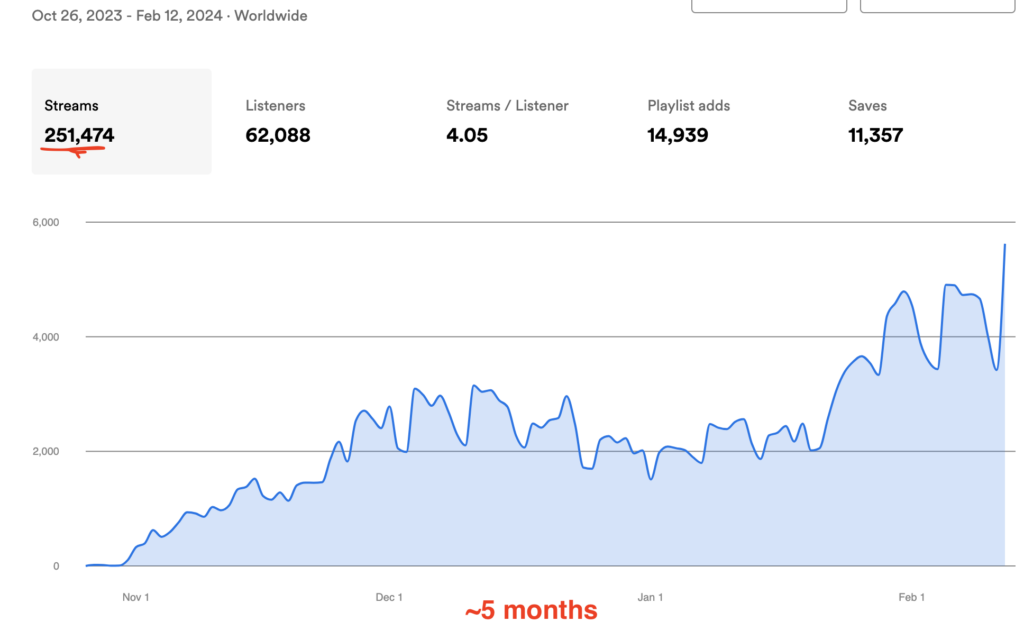Oof – that’s a big question.
And, as you might expect (and as seems to be the case for so many of life’s biggest questions) it’s not one that’s easily answered. It’s also one that’s understandably top of mind for a large percentage of those independent musicians working to grow their audience, gain exposure for their music, and generally “make it” in today’s music industry. Any coherent answer to the Record Label Question will naturally be dependent on a number of variables, the most significant of which is likely also the most personal: each musician’s definition of “success.”
Accordingly, as you may have guessed by now, the answer is not a simple “yes” or a “no,” but more of an “it depends,” and also a “what the hell do you mean by ‘worth it’?”
The Record Label Throughout Time
But lets back up. What does a record label actually do, and why might you, a fledgling musician, be interested in signing on with one in the first place?
Without quite turning this article into a history lesson, historically (whoops), music labels were the gatekeepers to the industry – that is, they used to be. Up until the early aughts, a musician without a record label was like a chef without a restaurant: no matter how good the product, without a viable mechanism to serve it, access to any kind of meaningful consumer base was severely restricted. Labels had the connections and the funding to effectively market a musician to his or her ideal audience; without that sort of professional know-how, to an independent musician, marketing was like chucking darts around a pitch-black room with no idea where the dart board might be.
Sure, a punk band might know to play regular shows at the local punk venue, and in doing so it might amass a devoted local following, but without a label, additional growth was likely to be incremental at best (Green Day’s story presents a pretty perfect archetype for successful band growth in the 90s).
Additionally, record labels would frequently pay for studio recording sessions (they still do this, in fact), sessions that were often prohibitively expensive to independent musicians; to belabor the restaurant metaphor, then, a musician without studio access was like a chef walled off not only from a restaurant, but also from decent ingredients. With no restaurant (a well-funded, informed marketing push) and no ingredients (a professional recording), the label-less musician was operating at a massive, nearly insurmountable disadvantage. Destined to be no more than a local legend, if anything at all.
The Record Label Today
So, what’s with all this past tense? What’s changed?
Well, a few things, and one of them was Napster, baby.
In 1999, Napster kicked off the file-sharing revolution and almost immediately kneecapped the industry at large; confronted with free songs courtesy of the information superhighway, the music-consuming public collectively realized that twenty dollars for a CD was way too damn much. With their shrink-wrapped cash cows suddenly removed from the equation, music labels found themselves with significantly less money to spend on acquiring new bands, and the A&R feeding frenzy that had characterized the late 90s cooled off into something far more placid.
Around the same time, due to rapid advancements in computer technology and processing power, software like ProTools made digital recording accessible to anyone with a reasonably up-to-date PC and a microphone.
From there, it’s easy to connect the dots to our current landscape: the iPhone has become a de facto pocket recording studio, and music platforms like Spotify allow just about anyone to upload just about anything (with a few easy-to-clear thresholds) to be listened to just about anywhere. The natural upshot? There are over one hundred million songs available on Spotify today. It should come as no surprise that the vast, vast majority of those songs were penned by musicians and bands unrepresented by traditional music labels.
Okay, deep breath. Where does all that history leave us? Things have changed, certainly, but have they changed for the better or the worse?
Once upon a time (in the heady days of 1997), a band worth its salt with a few tight songs could expect to attract label interest without much effort at all and then coast to a few years of low-key stardom – think back to just how many alt-rock-punk-pop, four-piece, guitar-driven bands were competing for space on your radio near the end of the 90s (there were a lot). That gravy train ran out of gravy, though, and now the potential role of a record label in an entrepreneuring musician’s life feels like something altogether more optional than it once did.
And so here we are, back to our starting question after a lot of hemming and hawing: are record labels worth it – do you need them to achieve success – in 2023?
The Art of the (Record) Deal
A good way to strike towards an answer might be to first take a look at exactly how record labels actually function in 2023. What types of record labels exist? What can they offer you, should you be so lucky as to convince one to represent you?
Let’s tackle the categories first: in short, there are the major labels, the sub-labels, and the independent labels (the “indies” to you kids in the know). You already know the major labels (Sony, Warner Brothers, Universal), and the sub-labels are subsidiaries that exist below those major labels and report up to them, share services with them, or otherwise technically operate under major label control (I say “technically” because some sub-labels function fairly independently from their parent company).
Separate from that hierarchy are the indies, which operate wholly – wait for it – independently, and therefore tend to be a bit more specialized in terms of genre, and also a bit less wealthy in terms of cash flow; even so, there are plenty of well-known names in this category as well (Jagjaguar and Sub Pop, to name a few), although many of those more successful indie labels have been snapped up by the big boys by now.
So, those are your three primary label categories – but what does a record label actually do for its artists, those poor souls with no fans and songs of gold?
One helpful way to illuminate the artist/label relationship is with big, neon green dollar signs: a record label will, above all else, seek to make the artists it represents profitable. A label makes money by taking a perpetual percentage cut of its artists’ sales (a “royalty”, the amount of which is heavily negotiated on the front end) and, in that way, shares in its artists’ success. Both label and artist are thus, at least in theory, motivated in the same general direction, although there are, as in every industry, predatory deals that are often alleged to benefit the label at the expense of the artist.
(See, for example, the feud between Scooter Braun and Taylor Swift that ultimately inspired her to re-record her entire catalog in order to reclaim ownership of her masters.)
Generally, a record label will take a royalty of an artist’s music sales for the term of the record deal (which can be for any negotiated length of time but is generally between one and ten years) in exchange for some combination of the following possible benefits to the artist: an advance cash payment (which the artist will need fully repay later), marketing, studio recording sessions, producer fees, booking services, etc.
That all sounds tantalizing on paper, of course, but without careful attention paid to the details, an artist can easily find himself or herself on the losing end of the deal; the advance might be too high to be realistically paid back out of lukewarm album sales, the label might insist on overreaching ownership rights, and there’s always the dreaded ::cue menacing Jaws piano notes:: 360 DEAL.
The 360 deal is a nefarious, blood-curdling post-Napster invention cooked up in a lab (the scary kind) by labels with dwindling bank accounts and designed to wring profitability from every facet of an artist’s musical endeavors. If that sounds menacing (and I sure tried to make it sound menacing), that’s because it is: in short, a 360 deal, so named because it draws a circle (or a little fence, or a prison) around the artist, such that the label’s cut extends beyond straightforward music sales to encompass merchandise, concert tickets, publishing, media appearances, and virtually anything that could conceivably make the artist money.
Its not to say a 360 deal can’t be beneficial or must always be designed in such an all-consuming fashion; in some cases, the pros can outweigh the cons. It’s just that they can be dangerous, and they require a deeper risk-reward analysis, like eating a blowfish might: you win, you get to enjoy one of dining’s most rarified dishes; you lose, you’re literally dead.
The Record Label and You
Now, let’s apply all of the above to you, the hypothetical talented, mostly ignored musician, so chock full of potential you’re about to burst into a spray of treble and bass clefs. Do you seek out a record label, or do you go it alone?
Here’s the thing: you don’t need a record label, not at first.
And besides, a label isn’t likely to pay attention to you until you’ve reached a critical mass of awareness and appreciation through relentless touring, Soundcloud, and/or social media stardom. In other words, these days most labels with real money to throw around aren’t going to take a chance on you until you’re already somewhat established and can demonstrate that you pose minimal risk.
Those salad days from the 90s when a swarm of A&R reps would buzz around the back of the venue every night and then fight tooth and nail to sign up whatever hot new band happened to play a set? They’re over, man.
The good news, though, is that you have a spectacular set of tools available to you to get things moving in the meantime, and most of them allow you to accomplish what was once the purview of those record labels you so desperately seek to court. Between social media and Spotify, you are fully empowered to begin generating your own momentum without sacrificing any potential profitability or ownership. You can use Garageband to record demos. You can book yourself shows at the local dive bar. You can get your music hosted on just about any platform that exists.
And if and when the time comes to level up – when you’re ready to take the damn thing on the road – the labels will be there to assist.
At that point, yes, you likely will need a label – to truly turn music into a lucrative-ish career, you’ll eventually need the kind of push and organization that only a label can provide – but by then you will have transcended the level where most independent artists operate. You’ll know when you get there. Between now and then, you can of course submit your electronic press kit to those labels that you think might be a good fit, and who knows, maybe you’ll get lucky; most independent record labels do accept submissions, and if you’re that good, putting yourself on a label’s radar might give you a better chance of getting plucked from obscurity than most.
A Note on Success
I mentioned the concept of “success” at the beginning of the article, and it’s one worth considering as you map out your plan for musical superstardom.
If, to you, success can only mean universal acknowledgment of your talents, your name becoming as recognizable as John Legend’s, and unfathomable wealth and fame, then you have your work cut out for you, and a label will (eventually) become an essential tool to achieving your lofty goals. If, however, you define “success” more modestly – if you look at it, say, as finishing songs that you’re happy with, sharing them at a local level, or playing live once in a while – you’re not only more likely to achieve that success, you probably won’t need a label to do it. That said, this is no inspirational “fame is overrated” article; if fame is what you’re aiming for, I say go for it, and start researching which labels you think might make a good home for your music.
Rest easy for now, though, and know that there is plenty of ground to cover on your own before you need to bring in the big guns. You’ve got all the tools you need, so get out there and build something.

